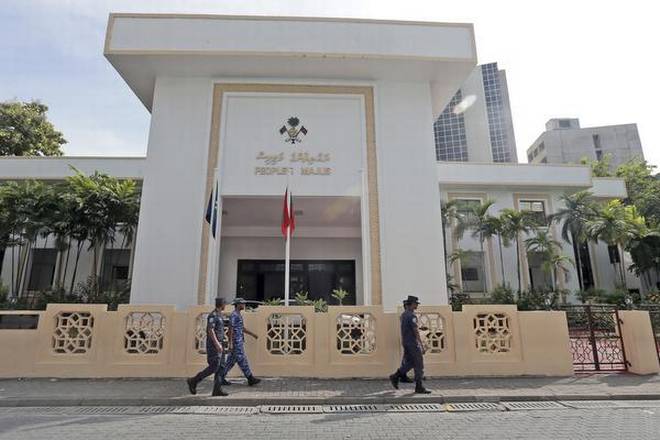On the early morning hours of November 3, 1988, 100 Mercenaries belonging to the People’s Liberation Organisation of Tamil Eelam (PLOTE) group directly attacked the Maldive’s capital of Male. Slowly and stubbornly, the Tamil mercenaries from PLOTE began to make in roads. Around 4:15 am, the Tamil Eelam mercenaries took over the Maldivian Television and radio stations. When the great crisis broke in Male, the Maldives National Defence Force (MNDF) did their best to help in securing the headquarters, although this was not without resistance. Ultimately, Shaheedh Corporal Hussein Adam was a Maldivian soldier who died while defending the defence force headquarters during the coup d’état on that day. A few hours later, the coup failed leaving behind 19 dead.
During the crisis, the rational national security choices were not made by the single decision maker only. Then Maldivian President Maumoon Abdul Gayoom presidency, the Maldivian Defense forces and the Maldivian Foreign Minister Fathullah Jameel coordinated with India and Sri Lanka asking for their support.
Highlights following the event were far more than what is described. The blatant attack on November 3, 1988 in the Maldives angered western nations. There was very little doubt that India’s role was essential for gaining the upper hand. India was the first South Asian country to signal its willingness to assist the Maldives. A large contingent of the Indian army paratroopers arrived on Hulhule island in few hours after the appeal from President Gayoom. With the combination of these security strategies, on that night the operation named as the Operation Cactus started. Although the siege on Male was over, the battle itself was far from won. The unprecedented failed attempt to overthrow the Maldives government saw the mercenaries fleeing with 27 hostages. The Indian navy captured the highly skilled fleeing PLOTE mercenaries off the Sri Lankan coast. Maldives with the support of India was able to control the crisis in the darkest hours of the Maldives’s recent political history.
Thirty years later, after years of bitter wrangling with President Abdulla Yameen Abdul Gayoom on September 23, 2018 who was in the opposition came in to power. Hence, one month after this resounding victory, the political opponents of President Yameen and exiled leaders such as Mohamed Nasheed, Maldives first democratically elected President returned.
For small island countries like Maldives and Sri Lanka, the diplomacy is fundamental and critical for the conduct of International relations. In both these episodes in 1988, when coup happened and in 2018, when Maldives faced another crisis where the opposition faced a democratically challenging situation, India played a very important constructive role in both the events. These viable commitments by India will pave the way to have long term continued solid cooperation with Maldives and its South Asian neighbours for the prosperity and stability of the region.
About the authors:
*Srimal Fernando is a research scholar at Jindal School of International Affairs(JSIA), India and an Editor of Diplomatic Society for South Africa.
Pooja Singh scholar of Masters in Diplomacy, Law, International Business at Jindal School of International Affairs(JSIA), India
Source:EurasiaReview
Image Courtesy:TH
You may also like
-
IAF Aircraft Set Course For Exercise Eastern Bridge VII At Oman
-
India-us Working Together In Areas Like Critical Minerals, Supply Chains And Advanced Technologies: Shri Piyush Goyal
-
Defence Secretary to co-chair 5th India-Philippines Joint Defence Cooperation Committee meeting in Manila
-
2nd India-Japan Finance Dialogue held in Tokyo on 6th September, 2024
-
Prime Minister, Shri Narendra Modi welcomes Crown Prince of Abu Dhabi
